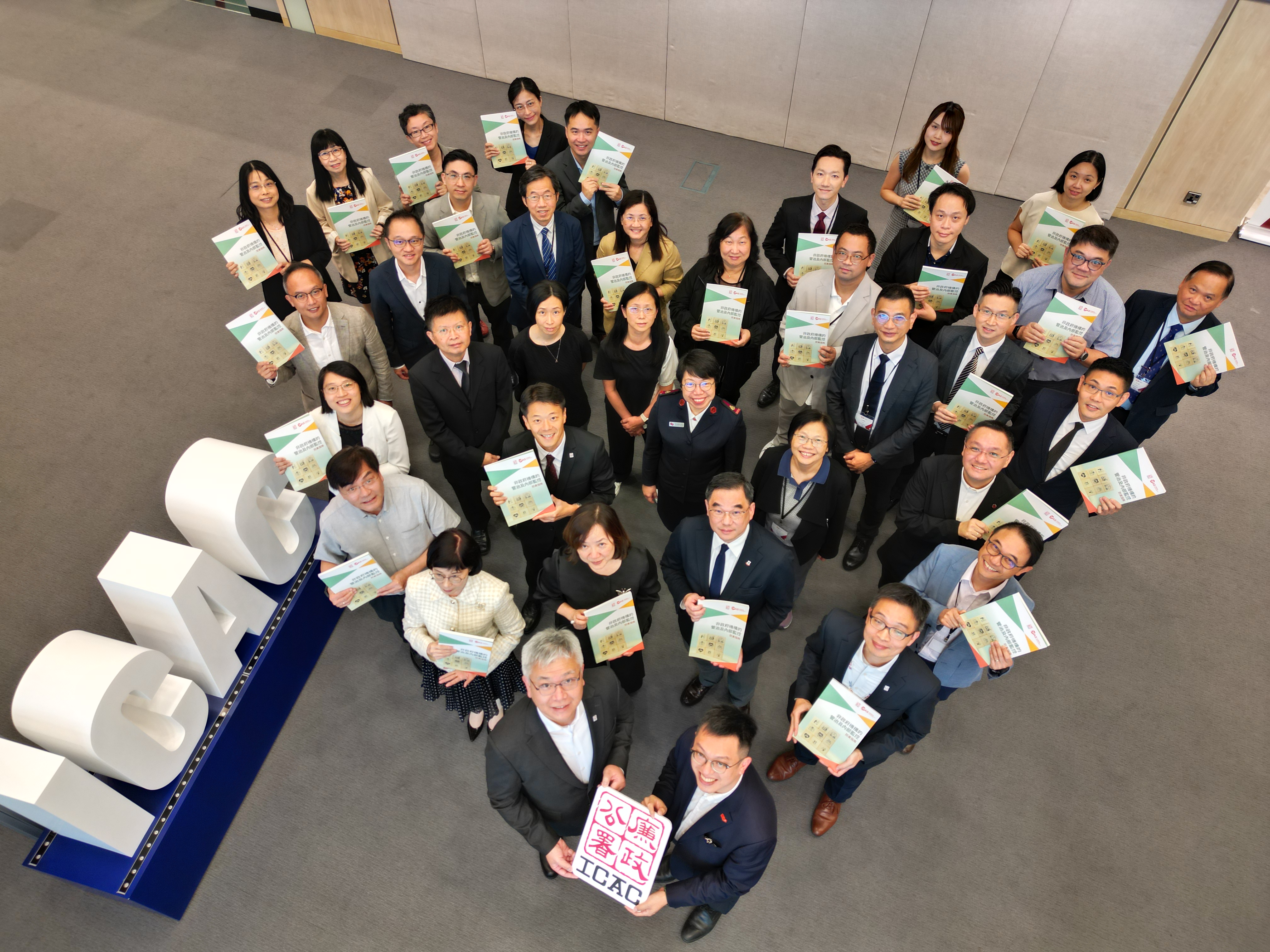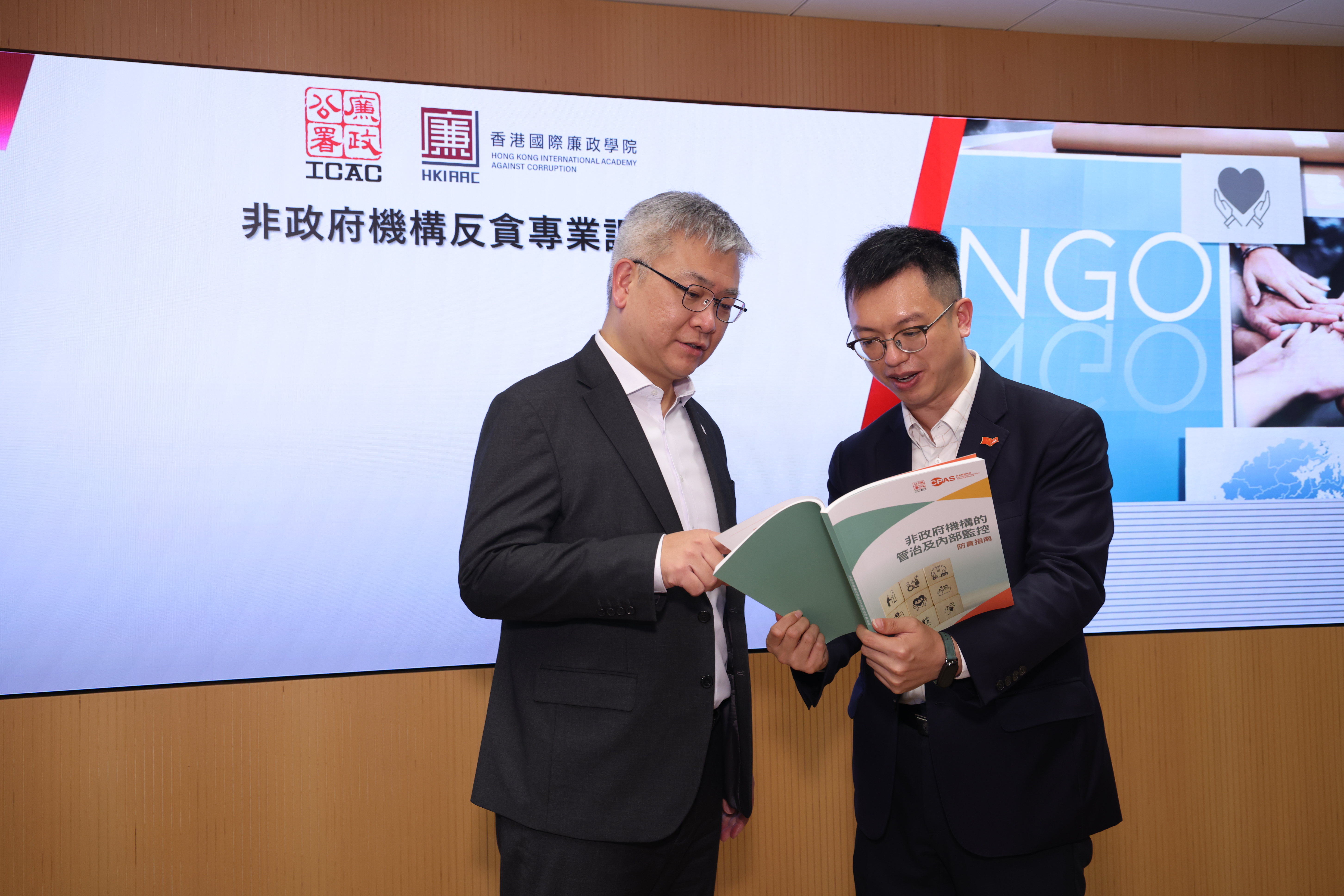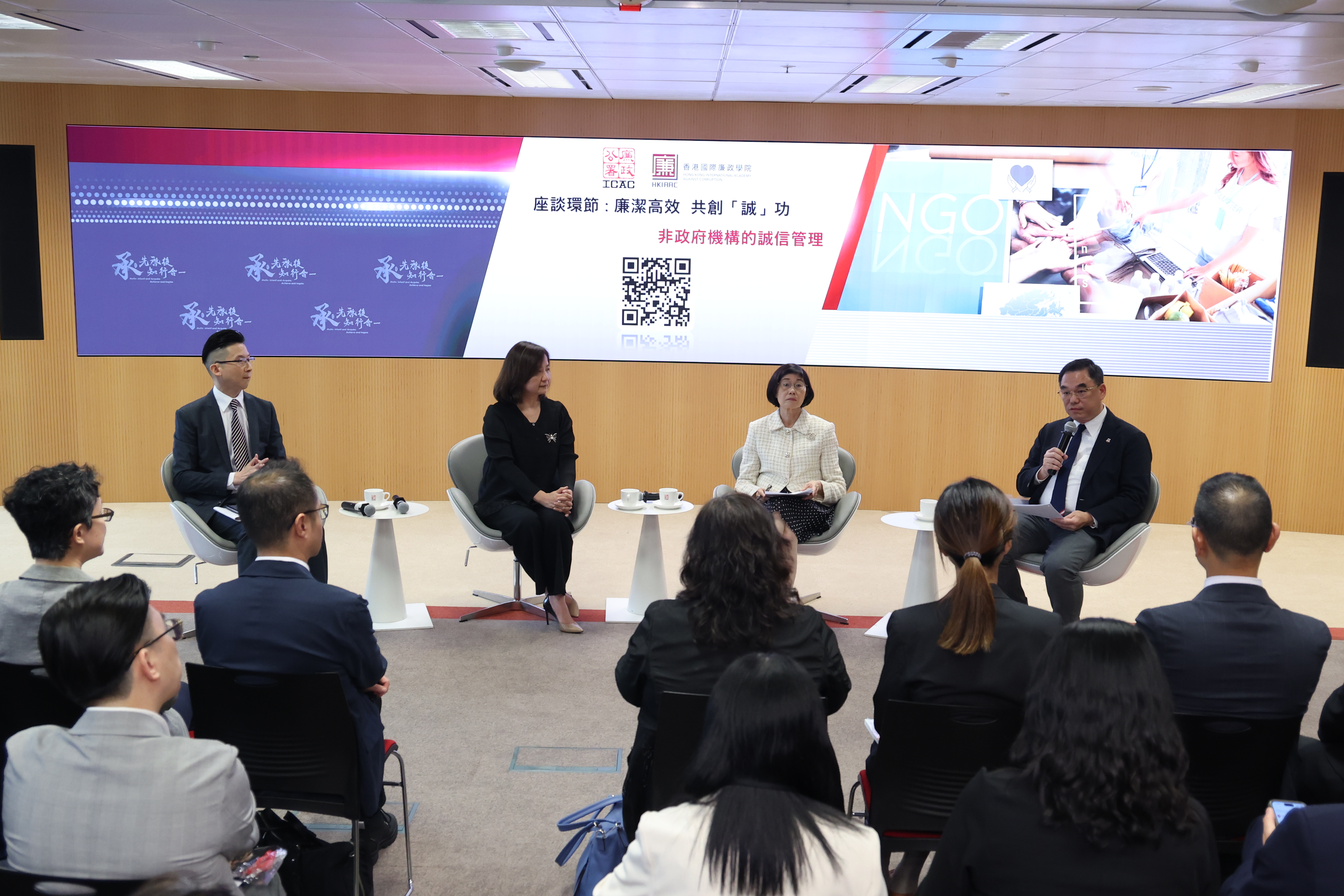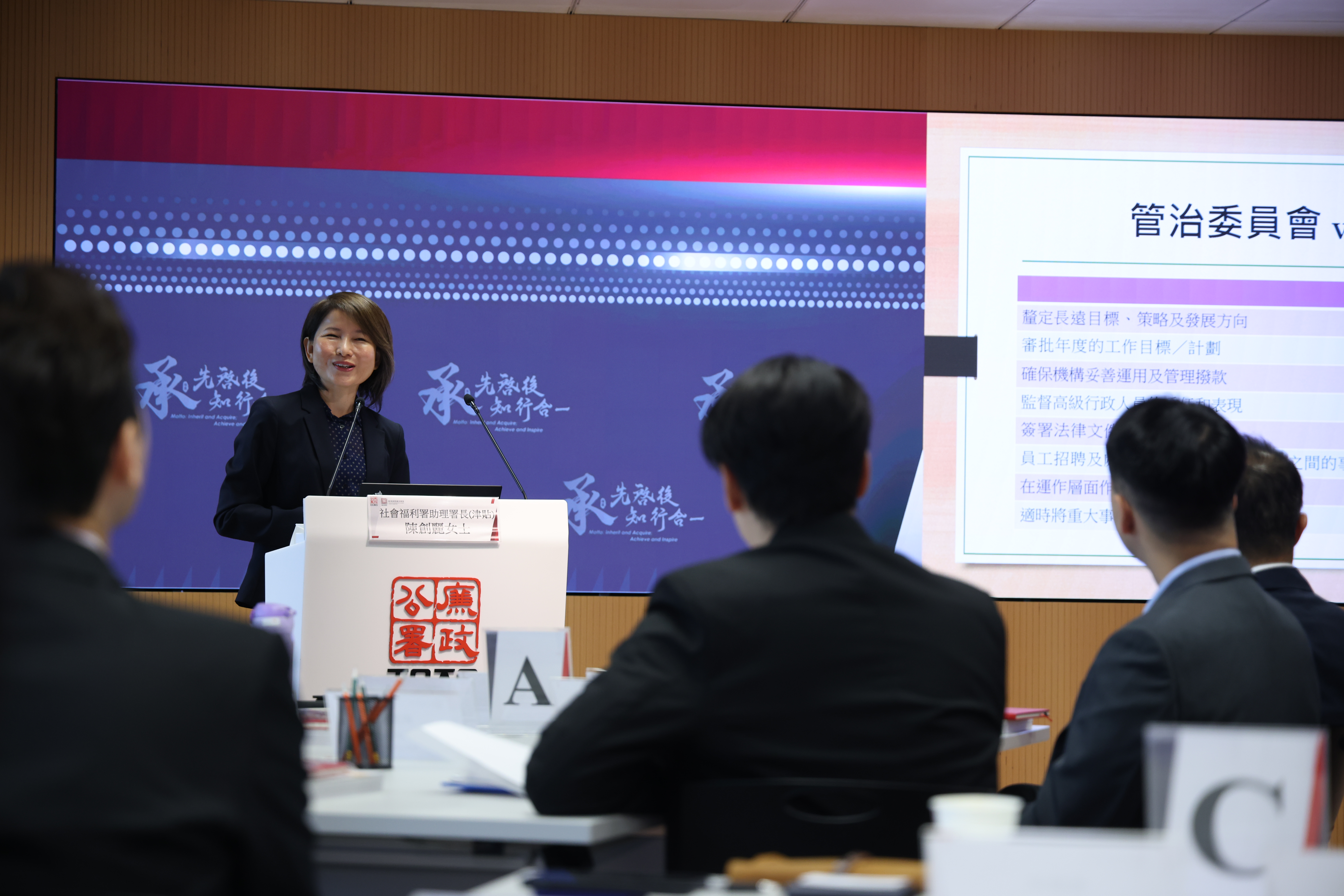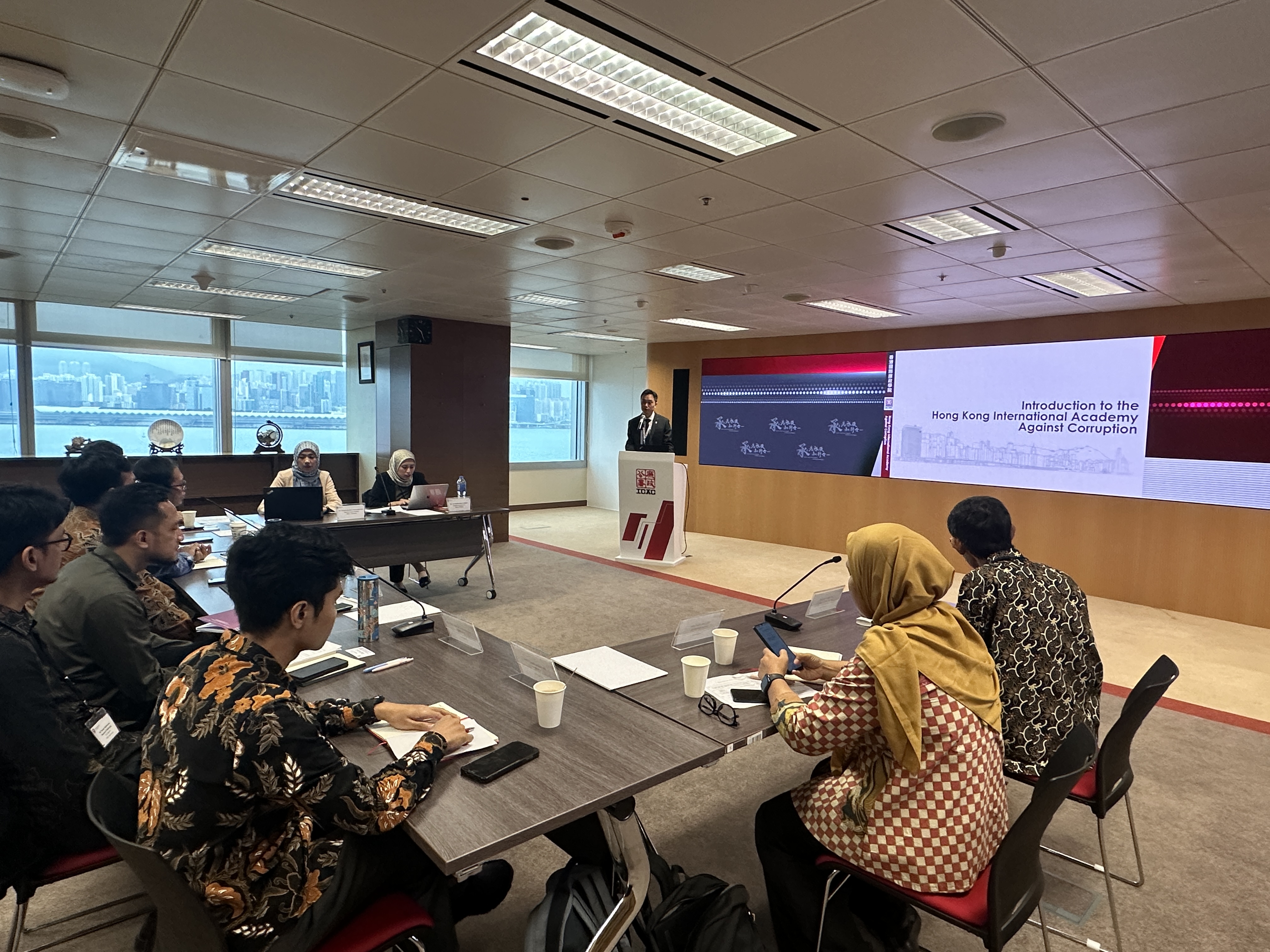HKIACC hosts first professional anti-corruption training for NGOs to enhance governance
2024-7-31
The Hong Kong International Academy Against Corruption (HKIAAC) hosted the first one-day “Professional Anti-corruption Training for non-governmental organisations (NGOs)” for about 30 major local NGOs which set to enhance governance and strengthen corruption prevention capabilities of the social welfare sector.
At the closing ceremony today (July 31), Acting Secretary for Labour and Welfare, Mr Ho Kai-ming, and ICAC’s Director of Corruption Prevention, Mr Bryan Chong Ka-lok, presented course certificates to about 30 senior executives of local NGOs, including a number of executive directors, who had completed the course.
Speaking at the closing ceremony, Ho said, “NGOs as a whole is a key component of the Hong Kong society which utilises substantial public funds and donations from various sectors. Social welfare service-users, donors and the public have high expectation on NGOs to operate in a fair, transparent and accountable manner. The “Professional Anti-corruption Training for NGOs” organised by the HKIAAC places emphasis on real-life application, aiming to effectively enhance integrity, professionalism and corruption prevention capabilities of the sector.”
“The course aims to assist NGOs in enhancing a clean culture and establishing corruption prevention mechanisms. Good governance and internal control of NGOs help ensure that government grants and donations by other organisations and the public are effectively used,” Chong noted.
The ICAC would continue to collaborate with the Labour and Welfare Bureau, the Social Welfare Department (SWD) and other stakeholders to enhance corruption prevention capabilities of the social welfare sector.
Through case studies, workshop and group discussion, course participants expounded on how to enhance governance, corruption risks management and integrity building in NGOs, covering topics such as staff integrity, resources allocation, financial management, digitalisation in corruption prevention, etc.
The course featured sharing by veteran ICAC officers from the Operations Department, Corruption Prevention Department and Community Relations Department, while Assistant Director (Subventions) of the SWD, Miss Chan Chong-lai, explained the government’s expectation on the internal control of NGOs. Meanwhile, Chief Executive of Tung Wah Group of Hospitals and member of Corruption Prevention Advisory Committee of the ICAC, Mr Albert Su; Vice Chairperson of the Connecting Hearts, Professor Annie Tam; and Head of Charities (Strategy, Planning, Operations and Reporting) of the Hong Kong Jockey Club, Ms Irene Leung, attended a panel session to share their experience with the participants.
The ICAC also promulgated the latest version of the “Corruption Prevention Guide on Governance and Internal Control for NGOs”, covering corruption risks in key operational areas such as procurement, financial management and service provision, and providing corresponding corruption prevention measures. The relevant information is uploaded onto the dedicated corruption prevention webpage for NGOs.
